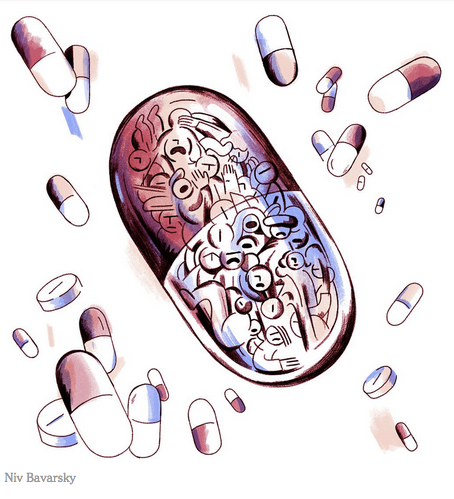The pharmaceutical industry was listed as one of the “Contributors to the Current Crisis” in the final report of President Trump’s Commission on Combating Drug Addiction and the Opioid Crisis. The report cites decades of aggressive marketing and industry-sponsored physician “conferences” aimed at expanding opioid use by minimizing the dangers of addiction. Lawsuits by state attorneys general, counties and local jurisdictions allege that the industry fostered the epidemic by overpromoting its products, while raking in billions as Americans became addicted and overdosed. “To this day,” the commission says, “the opioid pharmaceutical industry influences the nation’s response to the crisis.”
It sure does. In its response to an epidemic that now kills 50,000 Americans a year, the Trump administration wants to spend tens of millions of dollars in part to help the industry responsible sell ostensibly nonaddictive pain medications and “abuse deterrent” opioids that are as addictive as the original opioids.
. . .
The N.I.H. began its public-private initiative this summer with a series of closed-door meetings with pharmaceutical companies and academics. An N.I.H. spokeswoman, Renate Myles, said the research would include work on non-pharmacological approaches, but “we need to develop new nonaddictive medications for pain. These medications can only be brought to market with the active participation of the pharmaceutical industry.”
Purdue participated in the N.I.H. initiative. In June, in response to a call for public comments, J. David Haddox, the company’s vice president for policy, sent a letter to the commission outlining Purdue’s proposed “policy options,” including recommending that the F.D.A. “convert” the opioid market to predominately abuse-deterrent formulations.
The commission’s report includes important recommendations like expanding Medicaid coverage for inpatient treatment; expanding treatment with buprenorphine, methadone and other medications, including some still being developed; establishing a national curriculum and standards for opioid prescribers; and expanding an alternative system of drug courts that encourage treatment. Those should be the immediate priorities, not channeling money for more meds to drug companies, from the pockets of Americans whose pain was the industry’s gain.




